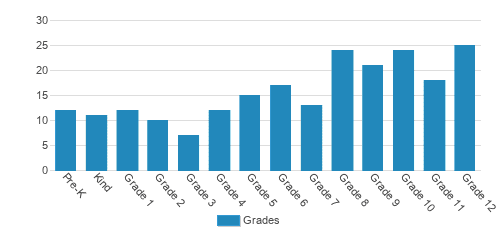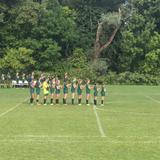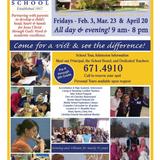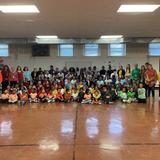Webster Christian School was founded in 1977 as a ministry of Webster Bible Church.
Originally, it had 54 students contained in grades K-6. By 1983 our first senior class graduated.
Over 80% of our seniors have gone on to college annually.
Presently, grades Pre-Kindergarten through 12 average about 260 students. We believe that all wisdom comes from God and that He is the source of all knowledge.
Quality education should be administered in a spiritual atmosphere. Therefore, we are dedicated to the belief that quality education must have at its core the concept that truth is found in the Word of God.
Any educational system or curriculum that fails to present Christian truth has failed to educate the whole student.
By using the Word of God as a basis for right behavior, we insist on respect for authority, well disciplined classes, and high standards of decency.
Provision of a quality academic education is not the only purpose of Webster Christian School.
We also desire to bring every child to a personal, saving knowledge of Jesus Christ and to promote growth in the child's personal relationship with the Savior.
School Overview
Religious Affiliation
Grades Offered
Grades Nursery/Preschool-12
Student Body
Total Students
221 students
Student Body Type
Co-ed
% Students of Color
12%
State avg.: 40%
Students by Grade

Academics and Faculty
Total Classroom Teachers
20 teachers
Student : Teacher Ratio
11:1
National avg.: 13:1
Tuition and Acceptance Rate
Admission Deadline
None / Rolling
School Notes
- Webster Christian School was founded in 1977 as a ministry of Webster Bible Church. Originally, it had 54 students contained in grades K-6. By 1983 our first senior class graduated. Over 80% of our seniors have gone on to college annually. Presently, grades Pre-Kindergarten through 12 average about 260 students. We believe that all wisdom comes from God and that He is the source of all knowledge. Quality education should be administered in a spiritual atmosphere. Therefore, we are dedicated to the belief that quality education must have at its core the concept that truth is found in the Word of God. Any educational system or curriculum that fails to present Christian truth has failed to educate the whole student. By using the Word of God as a basis for right behavior, we insist on respect for authority, well disciplined classes, and high standards of decency. Provision of a quality academic education is not the only purpose of Webster Christian School. We also desire to bring every child to a personal, saving knowledge of Jesus Christ and to promote growth in the child's personal relationship with the Savior.
Source: National Center for Education Statistics (NCES)
Frequently Asked Questions
When is the application deadline for Webster Christian School?
The application deadline for Webster Christian School is rolling (applications are reviewed as they are received year-round).
Recent Articles

5 Clues That It Might Not Really Be Montessori School
Of the approximately 4,000 Montessori schools in the U.S. only 1,100 schools are members of the American Montessori Society. Does this matter? What else should you look for to determine if a Montessori school is the real thing?

6 Schools and Their Beginnings
This article explores the rich histories of several prestigious schools in the United States, including the Allen-Stevenson School, Lycée Français de New York, Catherine Cook School, Shattuck-St. Mary's School, and The Spence School. It explores their origins, founders, growth, philosophies, and enduring legacies, highlighting their commitment to academic excellence and progressive education principles.

Technology in the Classroom
Technology is transforming K-12 education, enabling personalized learning, immersive experiences, and new teaching methods. This article explores the latest classroom technologies like interactive whiteboards, tablets, virtual reality, online learning platforms, and educational software. It examines how these tools enhance engagement, provide real-time data, and facilitate hybrid learning models.








